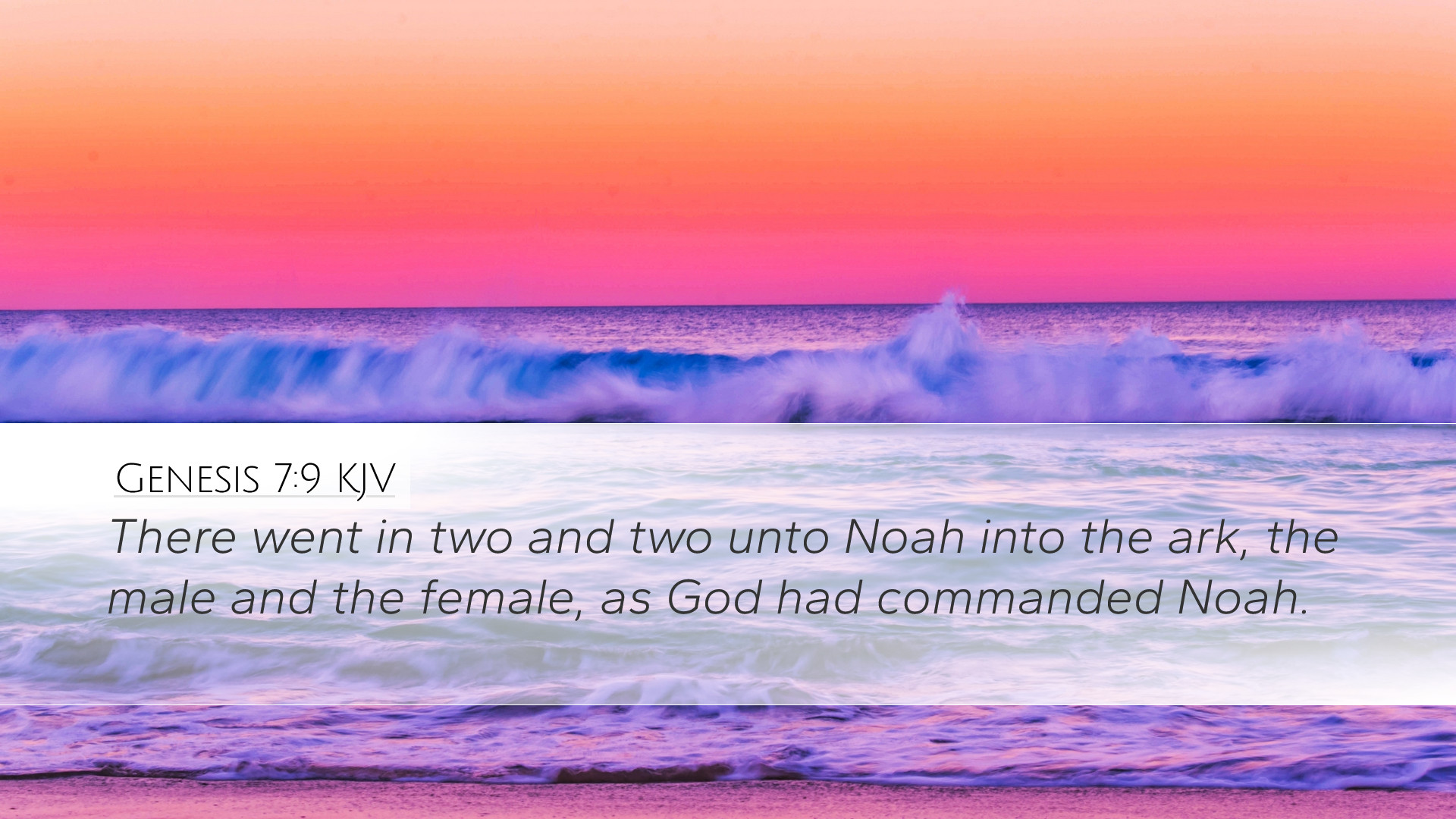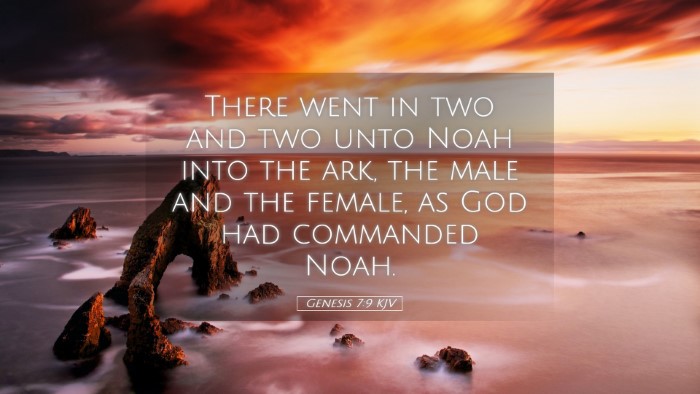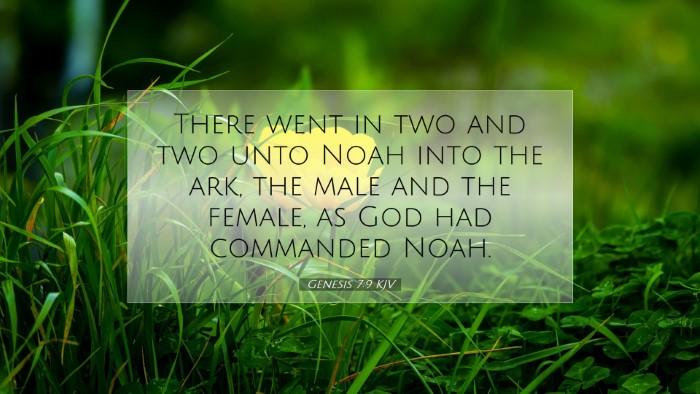Commentary on Genesis 7:9
Verse: "There went in two and two unto Noah into the ark, the male and the female, as God had commanded Noah."
Introduction
Genesis 7:9 marks a pivotal moment in the biblical narrative of the Flood, showcasing God's command and the obedience of Noah and the animals. This verse encapsulates the fulfillment of God’s promise to Noah regarding the preservation of life through the ark. The theological implications of this event unravel in significance when viewed through the lenses of divine providence, obedience, and the covenant between God and humanity.
The Divine Command
"As God had commanded Noah."
The obedience of Noah to God’s command is emphasized in this verse. The significance underscores the importance of human response to divine instruction. According to Matthew Henry, this moment illustrated the faithfulness of Noah amidst a world steeped in corruption. God’s directive showcases His authority and intention to preserve life, foundational themes permeating the entirety of Scripture.
Two by Two
"Two and two unto Noah into the ark."
The entry of the animals in pairs signifies several thematic elements. Albert Barnes notes that the pairing of the animals, male and female, is integral to God’s creation mandate to be fruitful and multiply (Genesis 1:28). This act not only affirms God’s intention for the continuation of life but also the preservation of ecological balance despite impending judgment.
Symbolism of the Ark
The ark can be viewed as a microcosm of God's salvific plan. Adam Clarke highlights that just as Noah prepared an earthly ark for physical salvation, it foreshadows Christ as the ultimate Ark of salvation for humanity. The selective saving of pairs emphasizes both God’s judgment upon the wicked and His mercy towards those who respond in faith.
Obedience of Creation
The animals entering the ark in accordance with God’s command depict a seamless harmony in creation. This theme resonates with the scriptural concept that all creation submits to its Creator's will. Matthew Henry remarks that while men often disregard God's commands, the animal kingdom follows His decrees without hesitation, accentuating humanity's sinful nature in contrast to the created order's obedience.
The Role of Noah
Noah's role as the mediator between God and creatures should not be overlooked. Adam Clarke observes that his obedience required not only faith but also considerable effort, indicating a partnership with God in the work of preservation. Noah's faithfulness exemplifies the model for believers who, like Noah, are called to act upon divine commands with unwavering trust in God's providence.
Theological Implications
- Divine Sovereignty: This verse illustrates the sovereignty of God in enforcing His will upon creation, emphasizing His power over nature and humanity.
- Covenant Relationship: The command to Noah signifies the inception of a covenant relationship, where God establishes terms for salvation that encompass both compliance with His directives and His provision for preservation.
- Judgment and Mercy: The act of gathering both clean and unclean animals reflects God's merciful nature, as He provides a means for continuity amidst judgment, a foreshadowing of Christ's work.
Conclusion
Genesis 7:9 serves as a profound reminder of God's ongoing relationship with His creation. The themes of obedience, divine sovereignty, and the dualities of judgment and mercy reflect critical tenets of the faith. For pastors, students, theologians, and scholars, this verse invites reflection on the essential nature of obedience to God's commands, trust in His providence, and recognition of the mercy available through Christ. The narrative of Noah and the ark not only recounts a historical event but also highlights continuing theological realities pertinent to contemporary faith practice.


